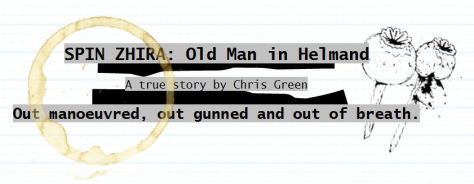On 6 July 2016, Britain learned that it had joined the invasion of Iraq in 2003 ‘before all peaceful options for disarmament had been exhausted’ that it had ‘sent ill-prepared troops into battle’ and had ‘wholly inadequate’ plans for the aftermath.
Of course, we knew these things already.
Despite the long wait (7 years) the huge cost (£10.4m) and incredible detail (2.5 million words) the Iraq enquiry was less revelation and more affirmation of the things we already knew to be true but dare not speak.

On the same day, a grim-faced President Barack Obama announced that planned US troop withdrawals in Afghanistan have been shelved, further prolonging the United States’ longest war.
The inability to end the war in Afghanistan does not come as a complete surprise either.
Way back in the spring of 2012, Major General CM Gurganus, USMC confidently asserted, ‘we are winning and the Taliban are losing’. No one really believed him. It was patently obvious that we were not fighting a simple binary war with a winner and a loser.
Later that same year Brigadier Douglas Chalmers, the senior British Commander in Helmand was less assertive and spoke of ‘cautious optimism’ for the future.
Of course, both men were talking bollocks. And I suspect they knew it too.
Just as in Iraq, US led, British backed military intervention in Afghanistan has been disastrous. Many of the findings of the Chilcot report, particularly with regard to post-conflict planning and reconstruction, can be equally applied in Afghanistan.
How did we fail to learn these lessons?
I believe it is because we have a culture of shooting the messenger that pervades both the American and British Armed Forces. We are so focused on success that we cannot countenance failure. To maintain morale and careers it becomes necessary to spin failure into success, telling people what they want to hear rather than what they need to know. This blindness to failure prevents us from learning from failure.
The language of ‘cautious optimism’ has been very costly in Iraq and Afghanistan.
Perhaps, after Chilcot, we are now ready to learn this lesson. SPIN ZHIRA: Old Man in Helmand is available as an Amazon Kindle e-book
SPIN ZHIRA: Old Man in Helmand is available as an Amazon Kindle e-book
SPIN ZHIRA: Old Man in Helmand is the unauthorised, unvarnished and irreverent story of one man’s midlife crisis on the front line of the most dangerous district in Afghanistan where the locals haven’t forgiven the British for the occupation of 1842 or for the Russian Invasion of 1979. Of course, all infidels look the same so you can’t really tell them apart.
